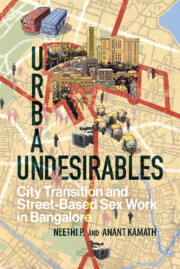Appendix: More on Method
Published online by Cambridge University Press: 30 June 2022
Summary
In this appendix, we elucidate further on oral histories and narrative enquiry methods used in our fieldwork and subsequent analysis.
The oral histories method has its basis in ethnography. To understand this, we borrow from Thomas Hylland Eriksen's exposition1 on anthropological enquiry, which first prods us to understand the fundamental sociological difference between ascribed and achieved statuses in modern society. While an individual's achieved status is a function of merit and performance and may be acquired depending on the individual's access to a range of resources, one's ascribed status cannot be easily opted out of. Eriksen mentions a notion that modern societies are constituted of achieved statuses as opposed to traditional societies that are characterised mostly by ascribed statuses but argues that this may not necessarily reflect the reality about either society (if the two can even be compartmented in that manner). These ambiguities arise because there are well-rooted and substantially populated subaltern groups in modern societies that the more advantaged (or self-titled ‘modern’) locals may be embarrassed to present to researchers who seek narratives. The more privileged locals may direct and guide the researcher away from these subaltern groups, even if they do not harbour any animosity towards them. In fact, in our experience of seeking street-based sex workers, even those among the non-privileged Populations, such as street vendors, garbage collection workers and autorickshaw drivers, vehemently denied the existence of such people by a brushing hand gesture conveying denial. In some instances, they even chose to lie that they had never heard of these groups operating there, which we realised when sex workers, in separate conversations, reported being personally familiar to them. In situations such as these, where the subject group's very existence is denied or suppressed (let alone difficult to access), the ethnographic toolbox and the oral histories method emerge useful in extracting these sources of information by departing from expected mainstream methodological tools and going beyond what the researcher is guided and directed to by informants on the field-site. In general, too, ethnographies of such populations become important to examine the degree and operation of surveillance and exclusion.
- Type
- Chapter
- Information
- Urban UndesirablesCity Transition and Street-Based Sex Work in Bangalore, pp. 186 - 190Publisher: Cambridge University PressPrint publication year: 2022

